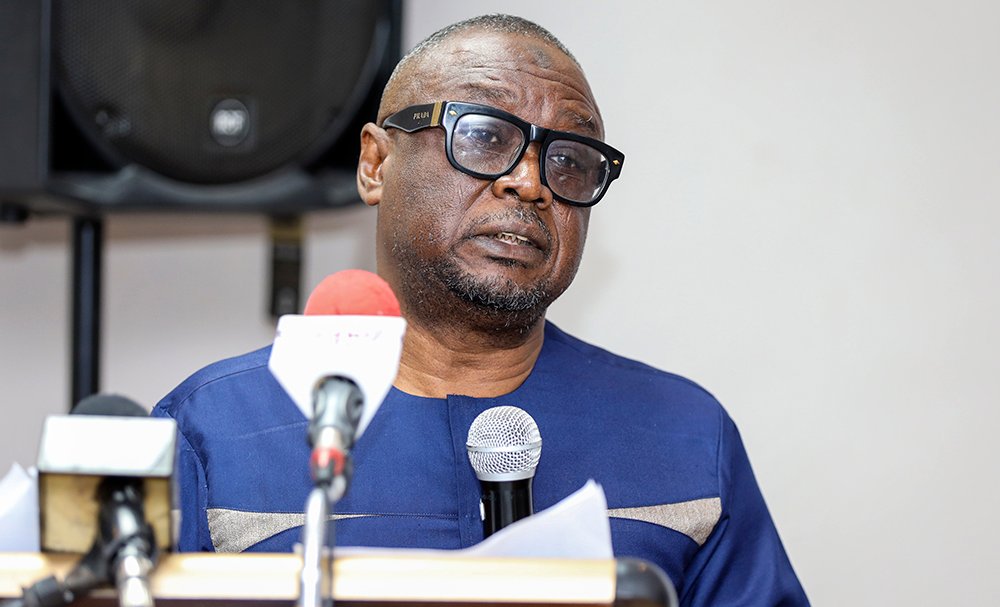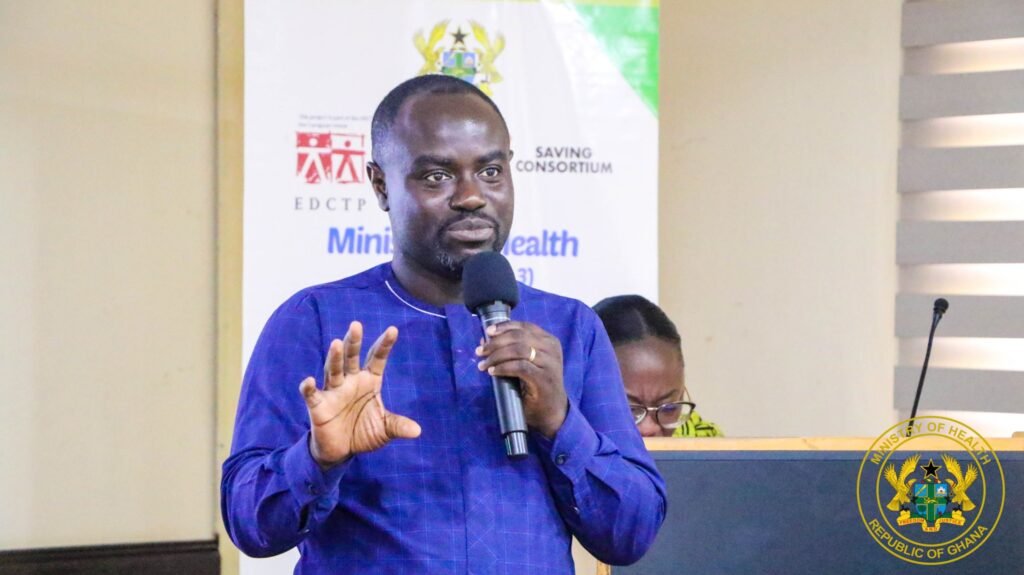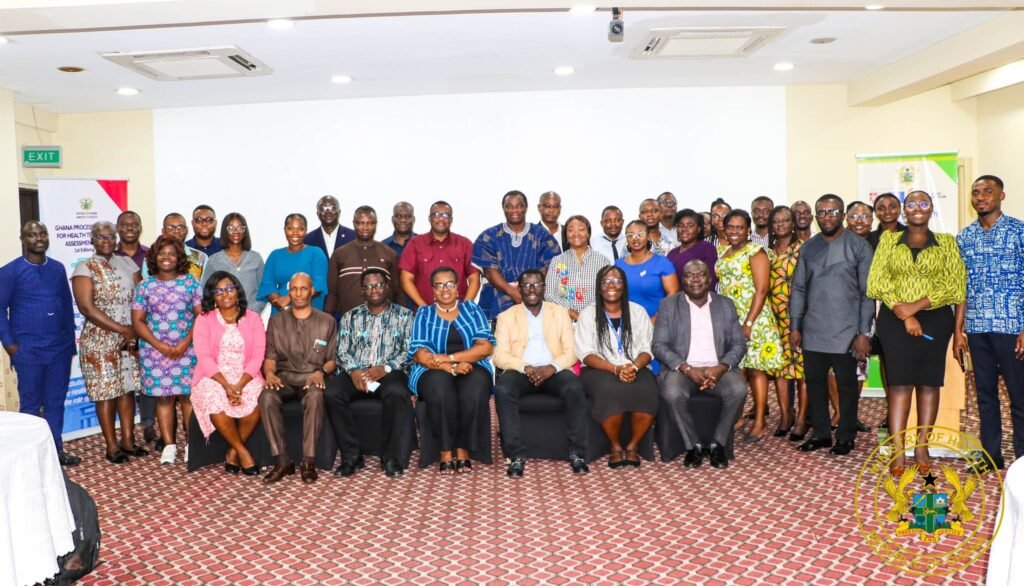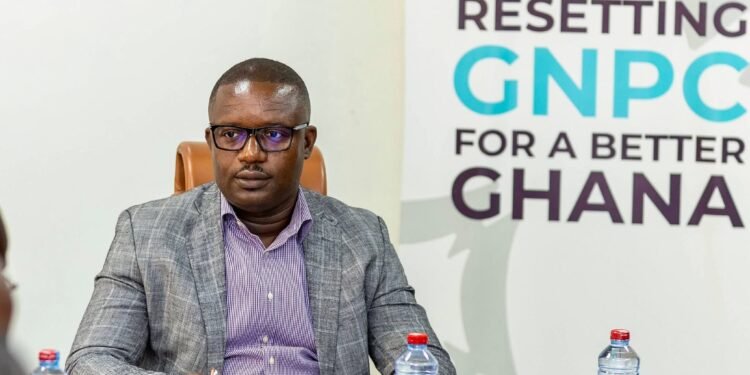The Ministry of Health has reaffirmed its commitment to advancing evidence-based health policy through the Sustainable Access and Delivery of New Vaccines in Ghana (SAVING) Project.
The project, often referred to as the European and Developing Countries Clinical Trials Partnership (EDCTP)-SAVING Consortium marks a major step in Ghana’s transition from being a research participant to a leader in health technology assessment and policy innovation
The SAVING (Sustainable Access and Delivery of New Vaccines in Ghana) Consortium is made up of the University of Health and Allied Sciences (UHAS) as lead, as well as the Ministry of Health (MoH), the Food and Drugs Authority (FDA), the Swiss Tropical and Public Health Institute (Swiss TPH), and the World Health Organization (WHO), Tropical Disease Research (TDR), PATH, and Access and Delivery Partnership (ADP) as collaborators.
The SAVING Consortium seeks to build the capacity of multiple stakeholders, including the Ministry of Health (MoH), the Food and Drugs Authority (FDA), and the Ghana Health Service (GHS), to identify and address implementation challenges for the efficient and effective delivery and uptake of new vaccines.

According to the Ministry of Health, the project has strengthened national capacity in health technology assessment, streamlined procurement and supply chain systems, and advanced health information dissemination.
The ministry emphasized that these efforts aim to improve decision-making, ensure efficient resource allocation, and promote transparency across the health sector.
By integrating evidence-based practices and enhancing infrastructure, the initiative supports sustainable health system improvements and better outcomes for the general public.
The ministry of health stated that the project has also developed practical tools to support the adoption of new health technologies, including a comprehensive Supply Chain Manual and a Drug Information Strategy.
According to the ministry, these resources provide structured guidance for improving logistics, ensuring effective distribution, and enhancing access to reliable pharmaceutical data, ultimately strengthening the health system’s capacity to manage innovation and deliver better care.

Delivering the keynote address on behalf of the Chief Director, the Director for Technical Coordination, Alhaji Hafiz Adam, said the initiative represents a pivotal moment for Ghana’s health system.
He emphasized that the SAVING Project, backed by the European and Developing Countries Clinical Trials Partnership (EDCTP), reflects strong confidence in Ghana’s capacity to produce and utilize research findings effectively.
He further stated that this initiative showcases the country’s growing leadership in evidence-based health interventions and its commitment to strengthening national health systems through innovation, collaboration, and the strategic application of scientific knowledge to improve public health outcomes.
Alhaji Hafiz Adam emphasized that the capacity developed through the project is not only robust but also sustainable, ensuring long-term impact. He noted that the skills, knowledge, and systems established will remain firmly embedded within the Ministry of Health’s institutions.
He also added that with well-trained personnel and strengthened operational frameworks, the project’s outcomes are expected to continue driving improvements in health service delivery and policy implementation for years to come.
He further assured that the progress achieved through the project will have a lasting impact, continuing to influence evidence-based decision-making well beyond the period of external support, adding that the systems, tools, and capacities established are designed to endure, empowering the Ministry to make informed choices that strengthen health outcomes sustainably.

Speaking on behalf of the Ministry, the head of the Pharmacy Directorate, Mr. Savior Yevutsey, expressed appreciation to the European and Developing Countries Clinical Trials Partnership (EDCTP), the World Health Organization (WHO), PATH, and other partners for their technical and financial assistance, and to all stakeholders whose contributions made the project a success.
He said the event underscores Ghana’s rising prominence in health implementation research and its dedication to enhancing the national health system.
He further emphasized that through innovation and collaboration, Ghana is demonstrating leadership and a strong commitment to advancing healthcare delivery, improving outcomes, and fostering partnerships that drive sustainable health system transformation.
It is worth noting that the project was launched in 2003 and renewed in 2014 and mandated by the governments of 14 European and 16 African countries, with funding through to 2024.
However, the health ministry’s commitment to continuing and improving the Sustainable Access and Delivery of New Vaccines in Ghana (SAVING) Project is what is being touted as a strengthening of evidence-based health policy.
READ ALSO: Forest Commission Calls for Paramilitary to Counter Illegal Miners






















